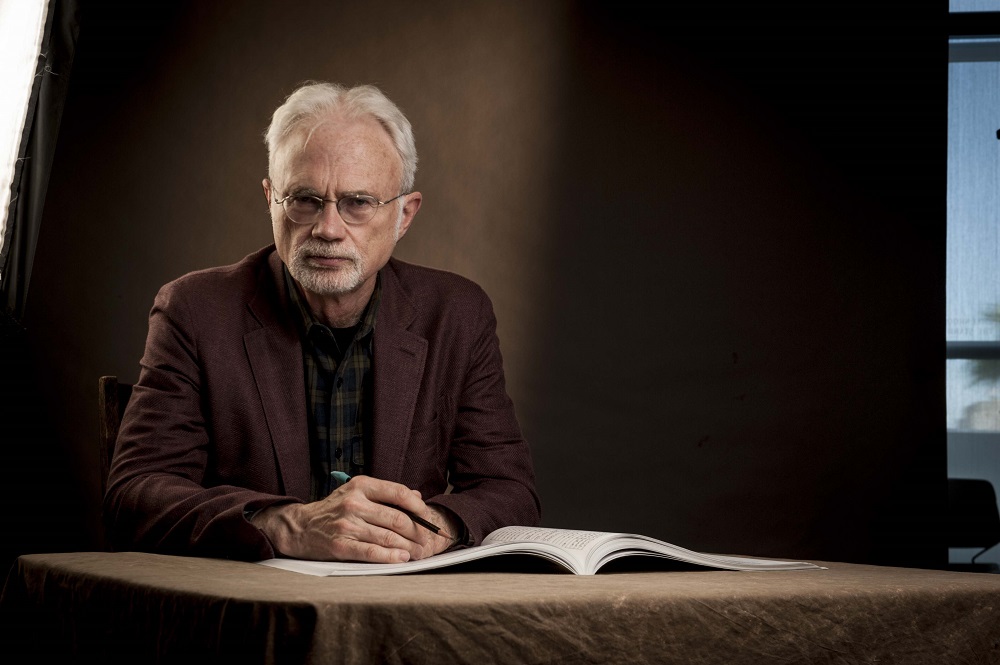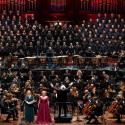Praise be to the spell cast by top players on great composers. Without the phenomenon that is Leila Josefowicz, John Adams would never have created his often prolix, fitfully hair-raising Scheherazade.2, more "dramatic symphony" for violin and orchestra than a concerto like his earlier work for the same combination (though that, too, is far from straightforward). It has to be experienced in concert to make its full impact: Josefowicz, in both sound and vision, is the very epitome of the proud and defiant heroine whose task is not to charm a murderous husband but to speak truth to power.
Adams the composer devised a programme context for Scheherazade.2 that was never going to sell that well, given that Josefowicz isn't the megastar she should be, in the UK at least; the Barbican was even less full last night than it had been for a masterpiece, the opera-oratorio El Niño on Saturday (depressing to think that Glass, interesting for the history of music but not for music, would have done the trick, but that's easy listening for you). Bartók's refined Hungarian Sketches, a gift to the splendid LSO woodwind from the first limpid clarinet solo onwards, followed up Adams' conducting of the Dance Suite, another mini-concerto for orchestra, back in 2013. And the connection of Stravinsky's austerely beautiful Orpheus to Scheherazade.2 made sense as our heroine reached an ideal asylum at the end of Adams' work, the climbing figures from the depths of one harp complementing the two instruments wistfully descending who frame the story of another musical narrator.
For all Adams' loving spoken introduction, raising the spectre of Trump again as he seemed to realise he'd punned on "playing the lyre/liar", the Stravinsky ballet weighed heavy at times. The unorthodox approach to the myth probably needs the supertitle guidance to movements and plot we got in Esa-Pekka Salonen's spellbinding Philharmonia performance back in October; but then Salonen was also more dansante, conjuring airborne movement in sound. For all the focused palette here, Adams (pictured below by Vern Evans) stuck to beating rather than phrasing; the "white" but unorthodox melody of the Pas de Deux sounded ordinary rather than wondrous strange. Full marks to the oboes and cor anglais, though, in the moving homage to Bach at the heart of the ballet.

While Stravinsky is at his most refined and elliptical in Orpheus, Scheherazade.2 paints in broad brushstrokes. Were Josefowicz's tireless volleys in the first two movements less dramatically realised, you might have caught a whiff of autopilot. Adams told me (let slip?) some years ago how he engaged Sibelius software to carry on the long melody that begins the superb Naive and Sentimental Music; the violin doodling as "the wise young woman" is pursued by "the True Believers" at the start sounds like it could have been computer-written, and the "Love Scene" feels generic once the arrestingly violent orchestral introduction has given the soloist a much-needed breather. The Rimsky-Korsakov original has more variety.
Adams' orchestration is mostly dense and luxuriant, like the dripping jungle of late Walton - I'm thinking more his Second Symphony than Violin Concerto - made distinctive by the sound of the cimbalom, carefully used, and an array of Chinese gongs. Though Josefowicz can hold her own against the saturation, you want it to thin out more often. When it's down to strings only, as in the apotheosis which seems geared towards an oriental version of the closing stages in Sibelius's Seventh Symphony, it's most effective. And Adams extends his vocabulary in the unison writing which evokes a Turkish sanat or classical orchestra.
Best is the most graphic, programmatic even: Scheherazade's third-movement defence in court before "the Men with Beards". The fundamentalists' jabbing accusations grow ever more violent, the violinist in response more reasonable until she's goaded beyond endurance. Once again Josefowicz's posture as well as her playing breathed heroic defiance, a true feminist icon. What a magnificent, profoundly musical artist she is.














Add comment